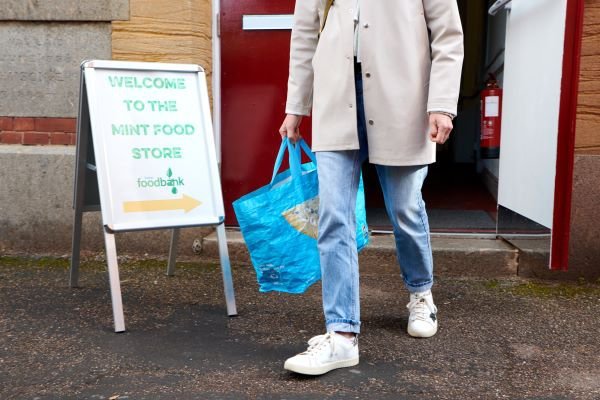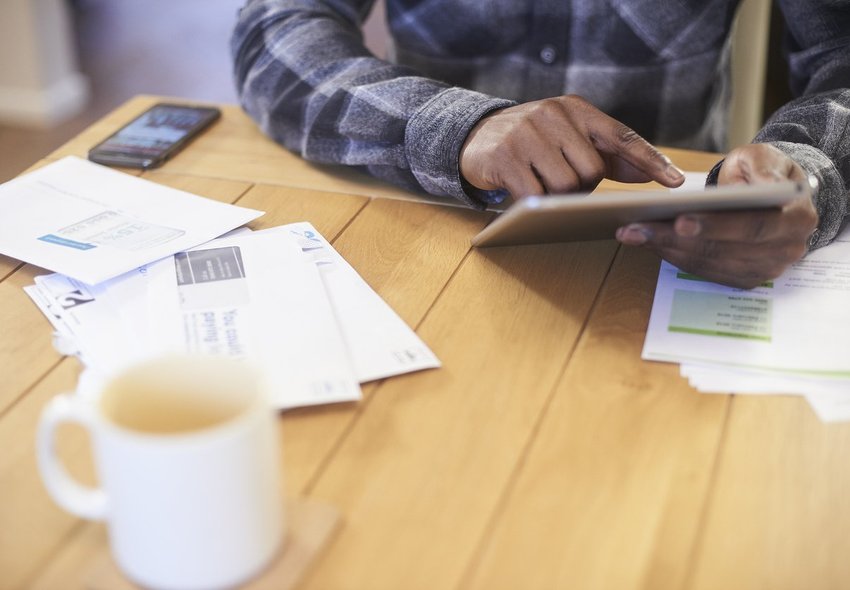What is social and community shopping?
Social and community shopping is loose term that describes local schemes that can make your money go further when food shopping. These range from locally run supermarkets that offer surplus food, to community stories that offer cheap memberships in exchange for discounted food.
Social shopping schemes are typically open to everyone and usually require a small fee or donation, allowing you to give back to your community.
Because social and community shopping options are often regional, be sure to ask your local charities, councils, and faith groups, as well as our Patient Support & Advocacy team, for information about specific options in your area. Find more information about schemes across the country on the FareShare website.
Affordable food shops and clubs
Affordable food shops offer fresh and nutritious food, often for less than a quarter of the cost you would pay in a supermarket. They may also offer financial advice and social activities such as communal growing schemes. For more information see the Feeding Britain website.
- Banes Food Finder - food clubs and pantries in Bath and NE Somerset
- Food On Our Doorstep Clubs - in Bristol, Manchester, Southend-on-Sea, Peterborough, Nottinghamshire, Birmingham, Greenwich, Cardiff, and London
- The Bread and Butter Thing - community-led charity providing parcels of food for a nominal fee (NE and NW England)
Social supermarkets and community cafes
Social supermarkets provide discounted, surplus food from retail outlets. This not only ensures that less food is wasted, but also allows you to buy thousands of supermarket goods at a discount in a comfortable, familiar environment.
To find social supermarkets and cafés near you, search ‘social supermarket’ or ‘community café’ online, followed by the area you live in. Alternatively, try contacting charities, councils, and faith groups in your area for guidance to your local social supermarkets and cafés. Shop and Donate CIC is an online social supermarket. FoodCycle has a growing list of community cafés.
- Community First - social supermarkets in Angus in Scotland
- Eggcup - Lancashire-based food redistribution charity
- City Harvest - London-based local food resources
Community stores, pantries, and fridges
Community stores, pantries, and fridges are community-led projects that reduce waste and can help you save money on your shop.
- Your Local Pantry - UK network of low-cost membership food shops
- Company Shop Group - a growing list of community shops
- Hubbub - a map of community fridges across the country
- UK Harvest - community food hubs in South and Southeast England
- Community Grocery - a map of pantries, mostly in north England
- Food Works Sheffield - kitchens, markets, farms, and communities in Sheffield.
‘Pay as you feel’ cafés and shops, and community allotments
Pay as you feel cafés and shops offer food for whatever price you can afford. The Real Junk Food Project is a project to look out for but be sure to ask the Kidney Care UK Advocacy team, local faith groups, and other local charities for more information about these schemes in your area.
Community allotments are also a great way of sourcing fresh produce and Farm Garden has a map of allotments across the country.
Clearance food websites
Clearance food websites offer heavily discounted food and can deliver to your door for a small fee. They are often available anywhere in the UK and can be a great supplement to your shop. Low Price Foods and Approved Food are great places to start.
Food and goods exchange apps and websites
The Too Good to Go and Olio apps put you in contact with local cafés, restaurants, and neighbours, offering the opportunity to buy and exchange cheap, surplus food from other people in your community.
Beyond your food shop, goods exchange, free sharing apps, and recycling projects are also fantastic ways to save money. Apps and websites such as Freegle and Freecycle allow you to recycle and exchange goods from people near you. Always remember to check Facebook Marketplace too, as many goods can be obtained for a fraction of their retail price.

What are foodbanks?
An increasing number of British families have been supported by foodbanks in the last few years. Many people find support in the foodbank community and the staff and volunteers and welcoming and helpful.
If you need to use a foodbank you will need a referral. Foodbanks and referral processes are slightly different in different regions so it's important to ask for local advice. If you need to use a foodbank:
- Contact the Kidney Care UK Patient Support & Advocacy team. Our Patient Support & Advocacy Officers work across the UK and can offer support and guidance about what foodbanks are available in your area.
- Contact your local council. They can inform you about foodbanks in your area and explain how to get referred.
- Local faith groups, schools, social workers, GP surgeries, and health care workers may also have information about foodbank schemes where you live and may be able to refer you.
Kidney Care UK, working in partnership with The British Dietetic Association, Renal Nutrition Group (RNG) has developed a list of foodbank foods which are better suited to meet the dietary needs of people living with chronic kidney disease (CKD). This list has been made available to every foodbank in the UK. If you have access to a printer, it might help your foodbank if you printed this list and took it in with you along with your foodbank vouchers.
The RNG has also issued the following advice to people living with CKD who need to use a foodbank: ‘If you need to turn to a foodbank for help and are concerned that the food they provide may not be suitable for someone with chronic kidney disease, please get in touch with your renal dietitian. Your renal dietitian will be able to support you so that together, and working with the foodbank, you are provided, where possible, with food better suited to meet the needs of someone with CKD.’
What are fuel banks?
Many people on low incomes or living on fixed state benefits will be faced with a decision this winter between feeding themselves or heating their property.
Fuel banks work similarly to foodbanks but are generally only available to those on a prepayment meter.
If you are not on a prepayment meter, other options such as charitable energy trusts and local charitable support are available.
There are several ways to seek advice if you need the help of a fuel bank or an alternative. As with food banks, options differ from region to region, but below are options and contacts if you need help:
- Contact the Kidney Care UK Patient Support & Advocacy team. They have a breadth of experience and can explain which options are most appropriate for you.
- Contact your local Citizens Advice online, or ring their national phone line on 0800 144 8848 (or 0800 702 2020 in Wales).
- Chat with your energy supplier. Most suppliers will have a helpline you can ring for advice about your bill if you are struggling. We offer more information about how to contact your energy provider, along with general fuel crisis information.
